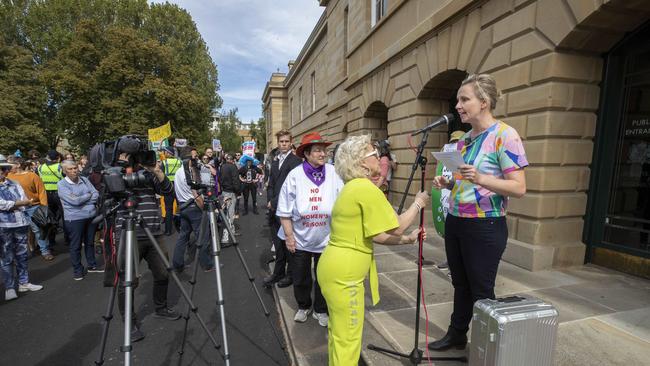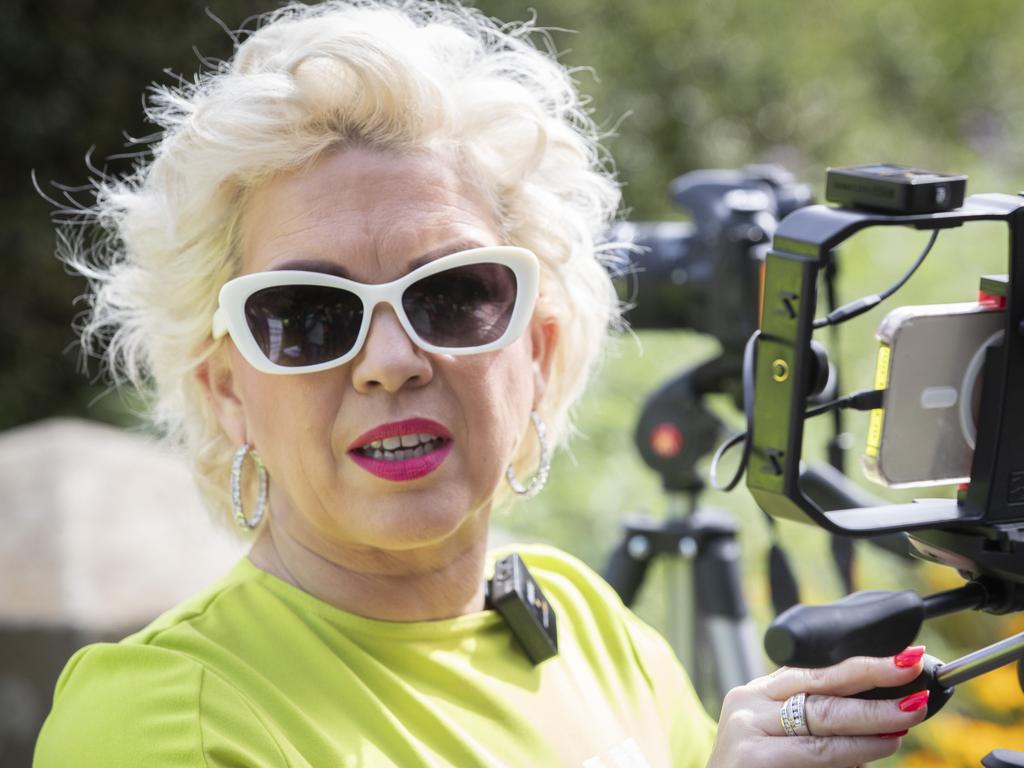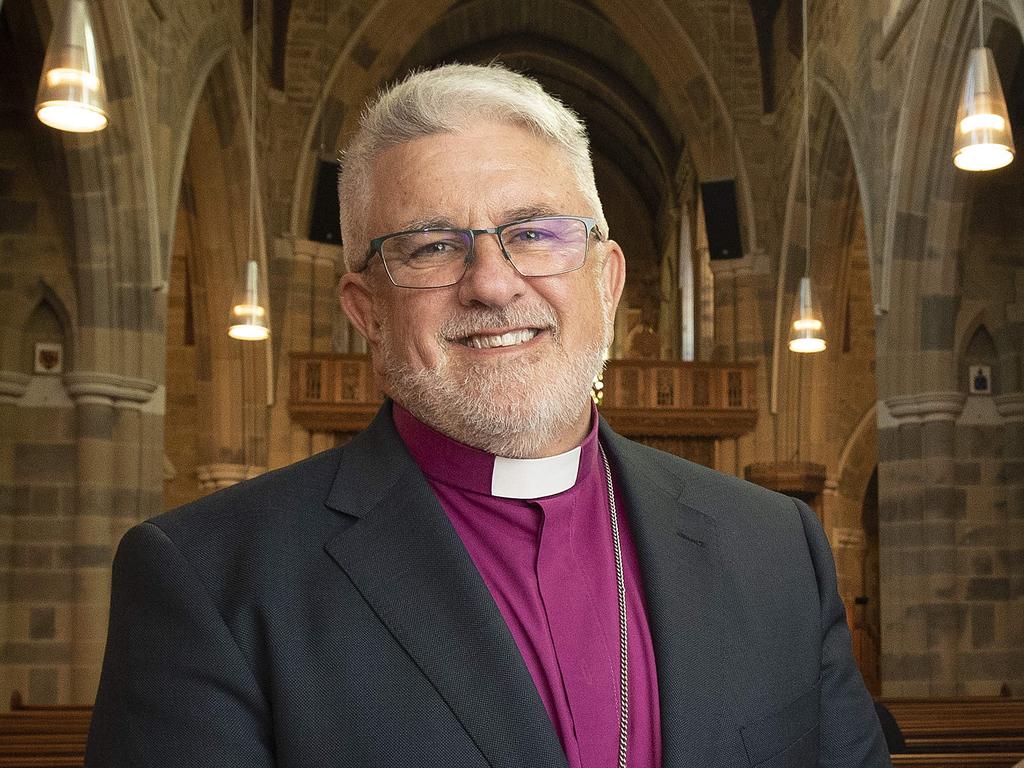Transgender ‘hate speech’ row shaping for High Court
The boundaries of free speech in the transgender rights debate appear set to be determined in a High Court test case over alleged incitement of hatred at a public rally.

The boundaries of free speech in the transgender rights debate appear set to be determined in a High Court test case over alleged incitement of hatred at a public rally.
Tasmanian Anti-Discrimination Commission Sarah Bolt has ruled Hobart City councillor Louise Elliot must face a tribunal inquiry for allegedly inciting hatred against transwomen at a March rally.
Ms Elliot told the Hobart rally, attended by British transgender reform critic Kellie-Jay Keen, that “transwomen … remain biological men” and some change gender “to gain attention”.
Ms Elliot also used the speech, posted online, to suggest transwomen should be excluded from women-only spaces because “you can’t be raped with a penis if there is no penis present”.
“It is absolute insanity that we have a law that allows a man to at 10am declare he’s a woman and by 11am be sharing change-rooms and showers with young girls,” Ms Elliot told the rally.
A complaint was made to Ms Bolt on the day of the Let Women Speak rally, which degenerated into ugly scenes as trans activists shouted down Ms Keen, Ms Elliot and other speakers.
Ms Bolt has concluded the complaint cannot be conciliated and should proceed to inquiry by the Tasmanian Civil and Administrative Tribunal.
Ms Elliot, who denies her comments were discriminatory or incited hatred, told The Australian she would argue the action against her impinged on the constitutional implied right to political communication.
That defence will likely see the case proceed to the High Court, regardless of outcome. Ms Elliot hopes to raise $100,000 to pay for a long legal battle.
The outcome could reaffirm or reshape state and territory anti-discrimination laws, including Tasmania’s, which makes it an offence to engage in “incitement to hatred, serious contempt and/or severe ridicule on the basis of gender identity”.
“I will be taking it as high as required, because this is a first, precedent-setting case and it is a clear-cut case,” Ms Elliot said.
“There is categorically nothing wrong with what I’ve said and I think the vast majority of Australians would agree with that. So if it requires going to the High Court that’s exactly what we’ll be doing.
“As a society, we need to have an appropriately high threshold around censorship, thought policing and compelled speech.”
It is understood the complainant argued Ms Elliot’s comments implied transwomen were child sexual predators and should be banned from women’s spaces.
Ms Bolt is understood to have concluded there are live legal issues in the case and that whether a political communication defence existed would need to be determined by the tribunal.
Ms Elliot began her speech to the March rally by stressing that the “vast majority of transgender and gender diverse people are very decent people”.
She said the decision to refer her to the tribunal was “an assault on freedom of belief, freedom of expression and political communication”. “Laws against inciting hatred are important… but stating biological and physical realities is not hatred.”
She and her family had been targeted since the rally, including “abusive slogans” written on her car and a broken letter box.







To join the conversation, please log in. Don't have an account? Register
Join the conversation, you are commenting as Logout